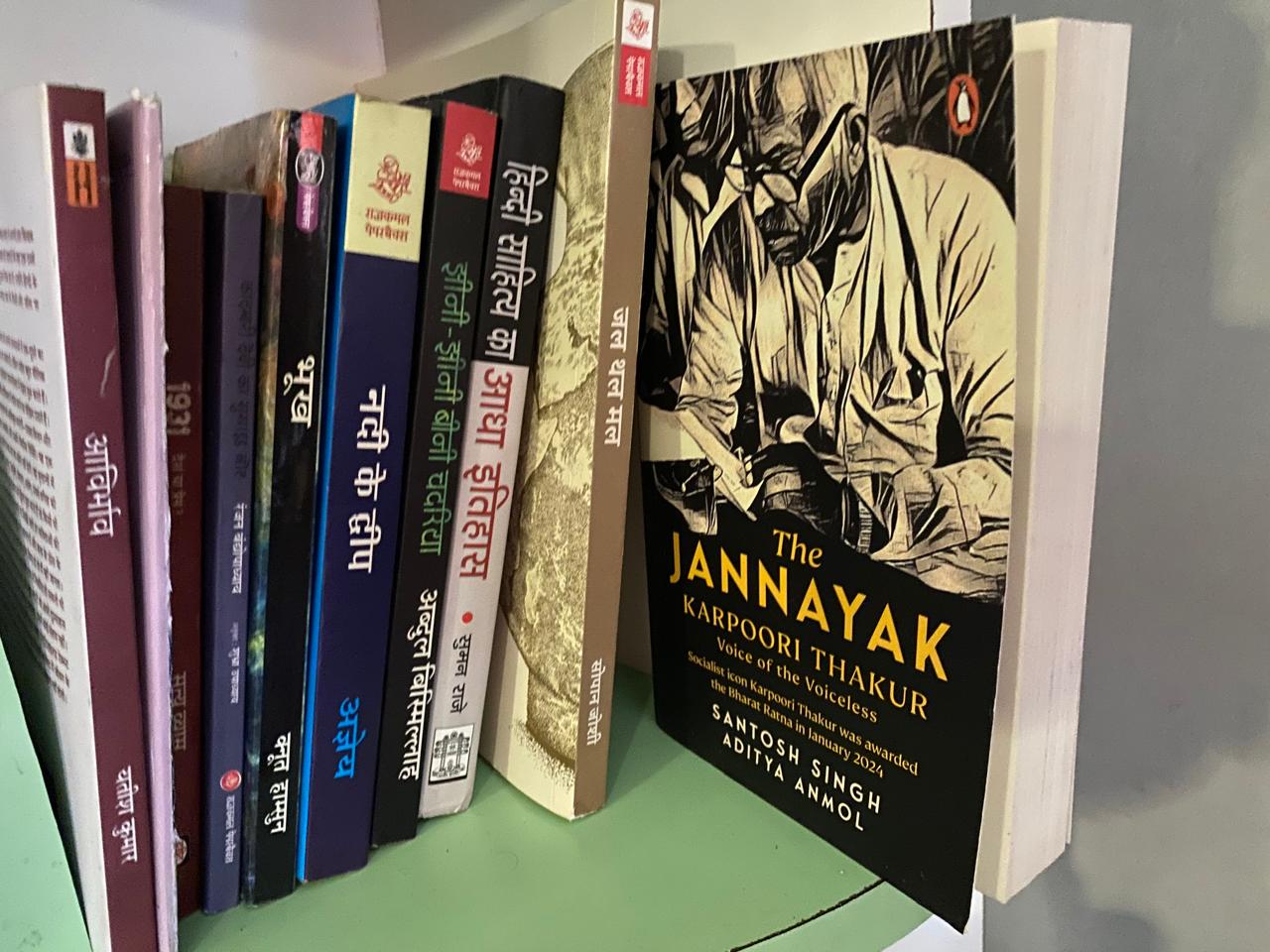
Believing in simplicity, honesty, and the Gandhian philosophy of ‘ahimsa’ (non-violence), Karpoori Thakur emerged as a unique and iconic figure in Indian politics. The book The JANNAYAK - Karpoori Thakur: Voice of the Voiceless, written by Santosh Singh and Aditya Anmol, vividly narrates his remarkable journey from the depths of caste oppression and poverty to becoming the 11th Chief Minister of Bihar. Through resilience and an unyielding spirit, Thakur rose like a phoenix, embodying the qualities of a true visionary and hero.
The book begins with a reference to the story of Eklavya, setting the tone for a central theme—caste politics and its inherent injustices. It emphasizes a powerful message: talent and merit do not rely on the approval of the powerful, and the struggle for recognition continues, much like Eklavya’s own. Thakur’s game-changing ideas, such as “free education” and “equity within equity,” are highlighted as fundamental to the social changes he sought to bring about.
One of the book's key focuses is Thakur's decision to remove English as a mandatory subject in Bihar's class 10 board examinations—a milestone in his quest for social reform and equality. This decision, along with others, is explored in detail, illustrating Thakur’s deep commitment to uplifting the marginalized.
Thakur is portrayed as a leader who never played the victim card, remaining steadfast in his mantra of not being corrupted by power. His leadership style was characterized by a calm, fearless approach to speaking the truth, and a refusal to harbor vengeance. The authors repeatedly emphasize his belief in karma and the inevitability of time in addressing societal issues.
The book also sheds light on Thakur’s personal life and humble beginnings. Born into a barber family in a village dominated by Rajputs, his rise to becoming a state leader is portrayed as an inspirational tale. The transformation of his village’s name from ‘Pitaunjhia’ to ‘Karpoori Gram’ in 1988, by Congress Chief Minister Bhagwat Jha Azad, further solidifies his legacy as a true Ajatshatru—a leader without enemies.
The narrative delves into the historical Bakasht movement, led by Hindu monk Swami Sahajanand Saraswati, and the subsequent formation of the Kishan Sabha. The book critically examines Gandhi's understanding of grassroots social dynamics and his support for Congress leaders who were inclined towards the Zamindari system.
The authors meticulously explore the dynamics of caste in Bihar, touching on the role of H. H. Risley in creating social stratification and the social friction among various castes, as exemplified by the Janeu movement. The significance of Thakur’s transformation from “Kapoori” to “Karpoori”—akin to the slow-burning yet potent aroma of camphor—is highlighted as a defining moment in his journey.
The book also recounts Thakur’s early political success, winning his first General Election seat as an MLA when socialists secured only seventeen out of 330 assembly seats. His popularity, even among political rivals, is a testament to his unique leadership style, one that earned him the distinction of being a deputy more famous than the Chief Minister.
Through extensive research, drawing from over 70 books, the authors present a comprehensive account of Thakur’s life, divided into three key phases: his participation in the National Freedom Movement, his involvement in the peasant movement and advocacy for the underprivileged, and his relentless struggle for a new political order until his death.
The JANNAYAK - Karpoori Thakur is deeply researched, rich in anecdotes, and compellingly written. It offers readers a profound understanding of the complex landscape of Indian politics, social structures, and the enduring legacy of Karpoori Thakur. This book opens a new window into the post-independence politics of Bihar, providing valuable insights into the untold stories that shaped this significant period in Indian history.